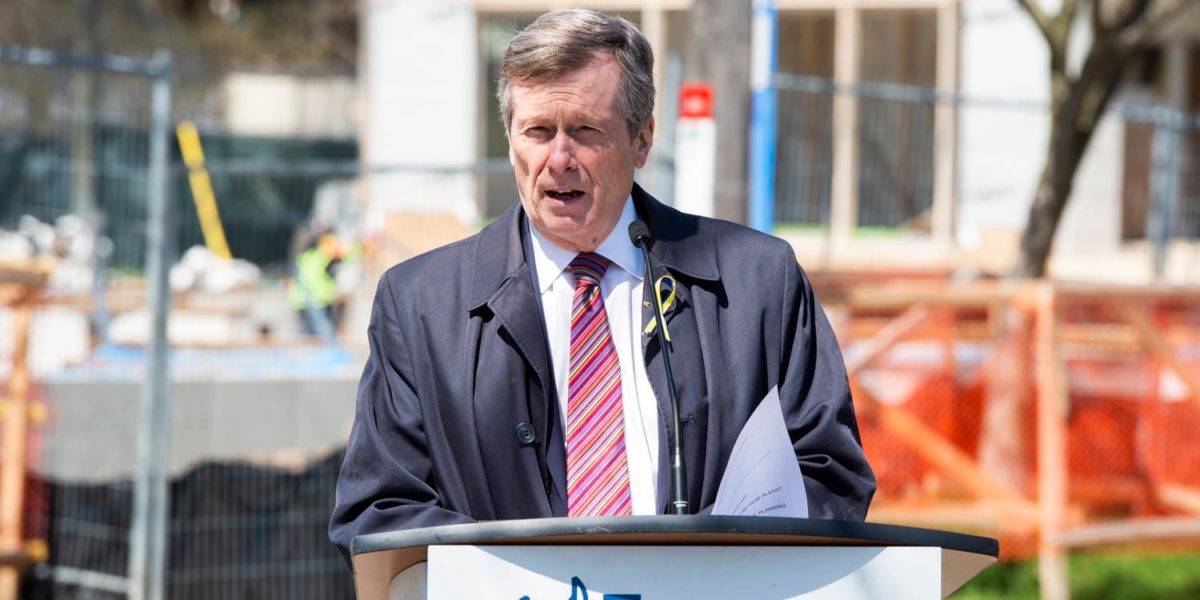In 2021, Toronto police conducted nearly 700 reported strip searches. More than 200 people who were strip searched were Black.
That’s just one of many harrowing findings from race-based data collected by the Toronto Police Association. The internal data, which cannot be verified by third-parties, was presented during a Toronto Police Services Board meeting on June 22, focusing on both use of force incidents as well as strip searches conducted by law enforcement.
In a media release following the publication of the findings, the Toronto Police Association called the results disappointing while noting that the data “leave[s] more questions than answers.”
The association’s own data found that in the year 2020 alone, Toronto police were involved in nearly 1,000 documented use of force incidents. More than 135 of those incidents took place in response to calls related to mental health.
While the Toronto Police Association touts body-worn cameras by officers as a step forward, it remains unclear what—if any—impact surveillance technology has on preventing police violence. Additionally, the Association points to training programs already in practice related to de-escalation and individual biases. Again, it remains unclear whether these programs result in fewer incidents of police violence.
The report concluded that more than 90 per cent of all use of force incidents in 2020 were the result of a reactive policing encounter, making up an average of 2.3 use of force incidents every day in Toronto.
Police chief apology an ‘egregious public relations stunt’
The release of the data was accompanied by a June 15 press conference where interim Toronto Police Chief James Ramer apologized to “The Black Community” for failing to provide “fair and unbiased policing.”
But to University of Toronto professor and No Pride in Policing Coalition (NPIPC) spokesperson, Dr. Beverly Bain, the apology was nothing more than an “egregious public relations stunt.”
Responding to Ramer at the press conference, Bain noted that the apology from the TPA has nothing to do with the Black community.
“In fact, the black community never asked for an apology,” she told Ramer while cameras rolled. “This was you apologizing to your rank and file for something for a series of information that we have been saying to you for decades that has been happening on the ground.”
Bain criticized the chief of police for talking about what a “painful and hurtful process” the findings from collecting race-based data has had on police officers, calling his statements insulting to Black people.
“Your police officers are responsible for their racism,” she said. “You have not told us how you’re going to stop the killing of our people.”
rabble.ca asked Toronto Mayor John Tory, who has also been a member of the Toronto Police Services Board throughout his tenure, about the police violence against Black people in Toronto happening on his watch at the Collision conference last week. He called the numbers “unacceptable.”
While Tory accepted a degree of responsibility for the disproportionate use of force against racialized individuals by Toronto Police, he lauded the fact that a number of policing reforms are on the way, but failed to name them.
“I’m happy that we’re measuring this data and reporting it publicly so that we can all collectively—all of us—be held to account,” he said. “We have to move to even more accountability for what is clearly not a state of affairs any of us can accept, which is that any one group, whether it be Black or Indigenous or other… That can’t be the way we’re doing law enforcement. We have to do policing better in many different respects.”
For the Ontario Human Rights Commission (OHRC), the release of data showing disproportionate harm against Black people by police represented a positive step forward.
“Chief Ramer’s acknowledgement confirmed what Black communities have said for decades: that Black communities are disproportionately subject to use of force and other enforcement actions,” a June 16 press release read. “For Black communities, the real test will now be the extent that discriminatory policing is demonstrably reduced or eliminated.”
The OHRC, which is in the midst of completing a public inquiry into anti-Black racism by the Toronto Police Service, is now in the final stages of their report that will include recommendations for change. The report is set to address issues around transparency and accountability for discriminatory policing, as well as “effectively measuring the impact of recommendations on policing performance, and addressing both systemic racism and individual acts of racism that do not exist in isolation but co-exist and overlap.”
No Pride in Policing
On Sunday, June 26 the No Pride in Policing Coalition (NPIPC)held a march titled Abolitionist Pride: Reclaiming our radical histories and creating liveable futures without police.
Featuring speakers including Bain and author of Policing Black Lives, Robyn Maynard, the event was held in front of police headquarters. In addition to defunding police services, the demonstration also spoke out against TD Bank for financing the climate crisis, the U.S. consulate to express solidarity with those experiencing the loss of reproductive rights, and the Ministry of Labour for its treatment of queer and trans employees.
In a media release following the police chief’s apology, the NPIPC noted that “the police are a major obstacle to our freedom.” The Coalition also pointed out that nobody asked Toronto Police for the apology. Rather, they’re seeking meaningful political change that would “eliminate the need for the next apology.”
“Even as the police apologize to Black people, they are attacking unhoused Black and Indigenous people in parks, criminalizing queer, trans, and two-spirit people, evicting tenants who can’t pay the rent, jailing sex workers, stalking students on playgrounds and campuses, and arresting people demonstrating in the streets,” the release read.



